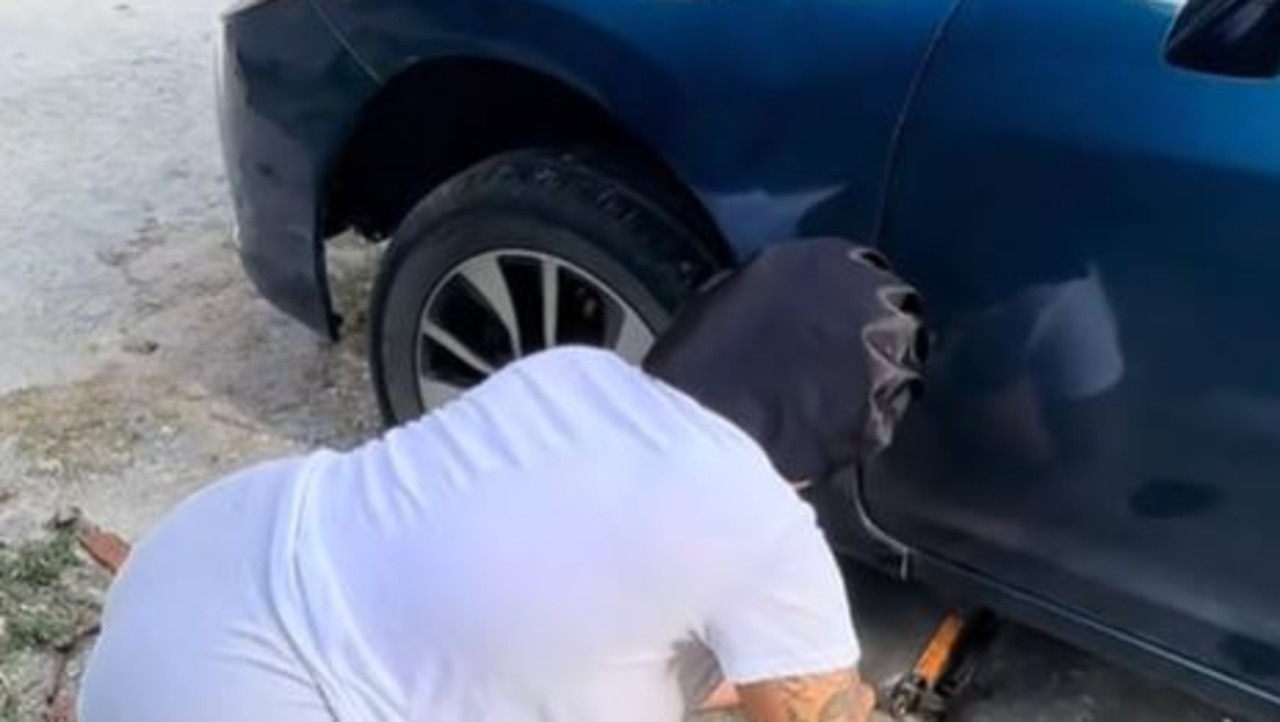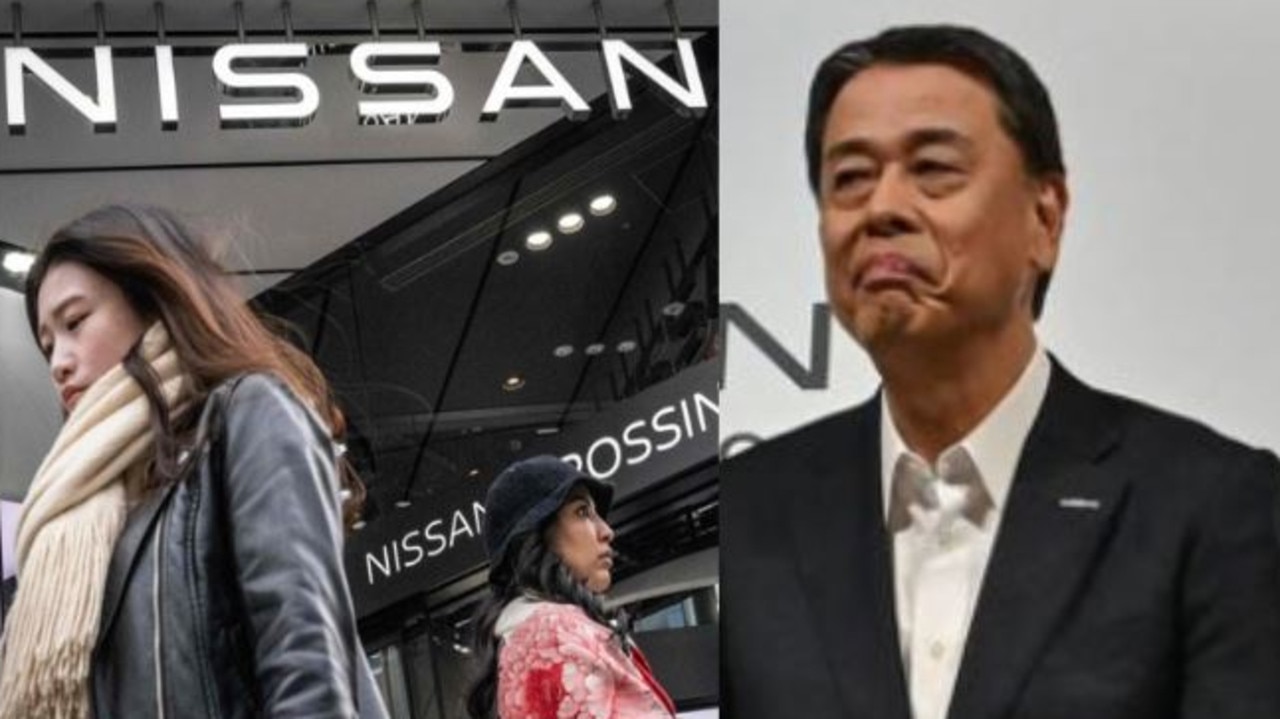Rapper crashes flying Tesla into building
Controversial video of a high-speed smash in the US shows out-of-control car in footage examined by internet detectives.
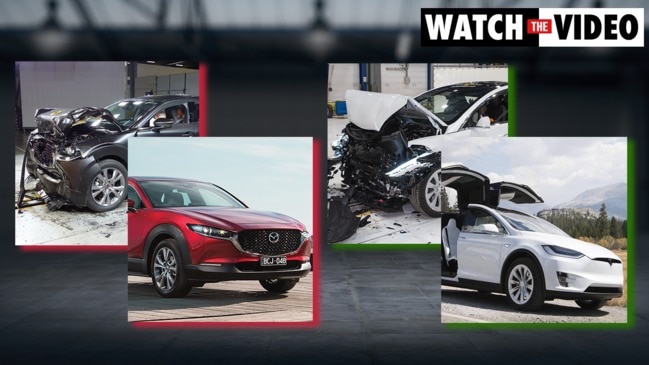
Tesla fans are debating whether a video depicting a high-speed crash of an electric car is legitimate.
Footage of a new Tesla Model Y speeding in an industrial estate in Florida before smashing into a building has sparked discussion of whether it was staged in an attempt to build fame.
The clip shows the Tesla bouncing over drains at high speed, leaping off the ground as the car’s suspension struggles to control its mass.
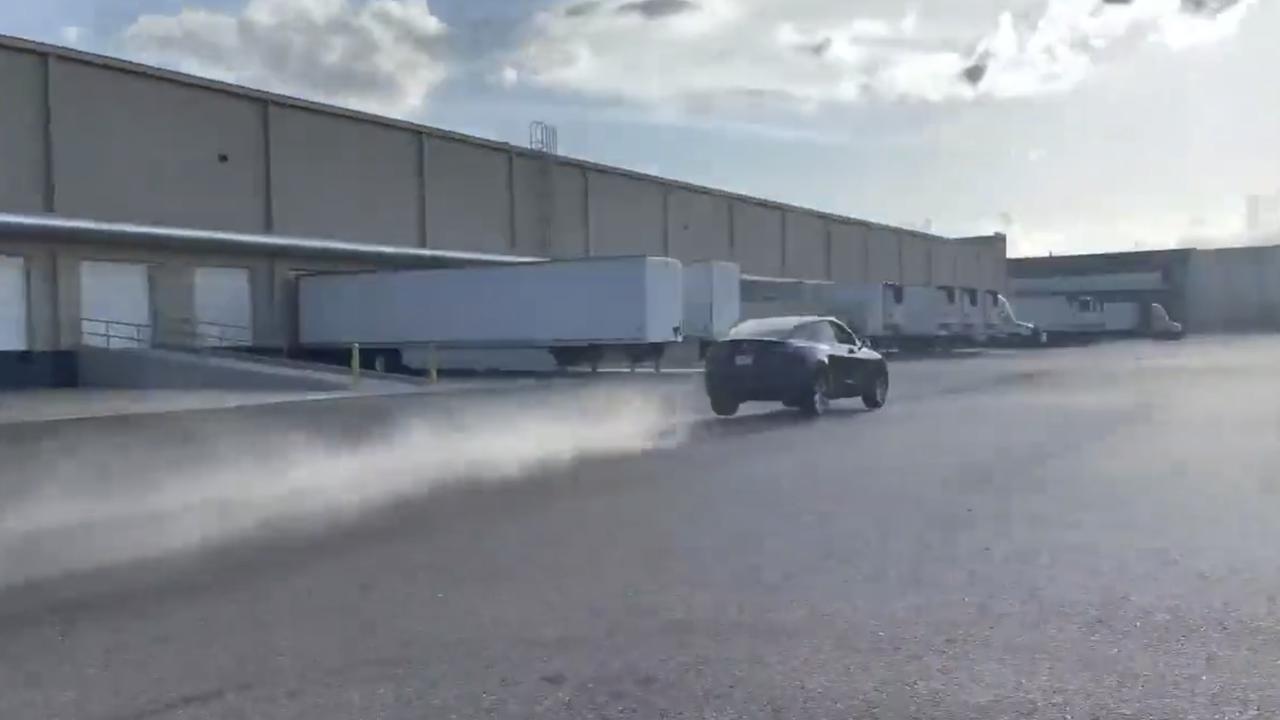
Moments later, the car is shown lodged in the wall of a warehouse, following what commenters described as a “Tesla-sized” hole in a garden.
So let me get this straight:
— Whole Mars Catalog (@WholeMarsBlog) September 4, 2021
Your plan for road safety is to ban Autopilot and let these guys drive instead? Good luck with that. https://t.co/rdl1PEV73opic.twitter.com/IvVD697P9V
The car is fitted with dealer-specific registration plates suggesting it may have belonged to a Tesla store around the corner in Orlando.
A man exiting the damaged vehicle said it “just did not stop” before impact.
Conspiracy theorist bulletin boards examined what video for clues it may not represent a genuine crash. One Reddit user said the incident was “so stupid that at first I thought the video was fake”, while another pointed out that “Brakes don’t tend to work on airborne motor vehicles”.
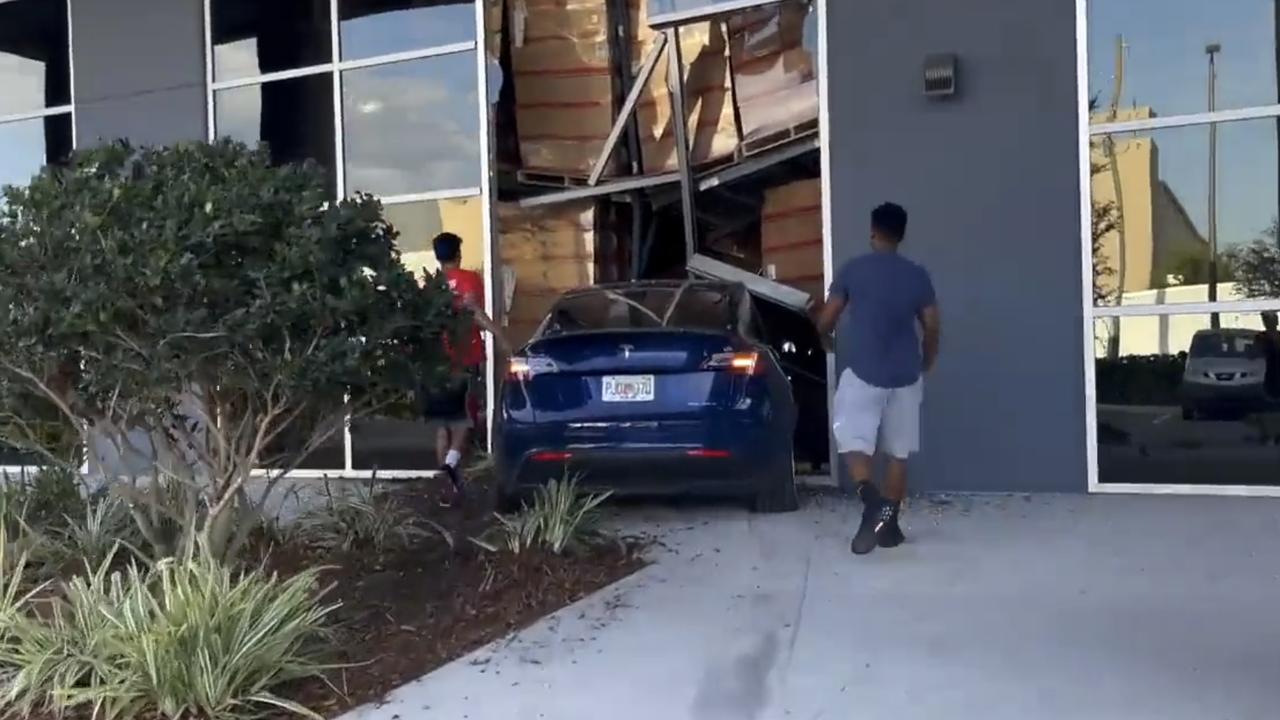
Multiple versions of the video have been removed from YouTube following a copyright claim by fledgling channel Richh Vlogs, which is linked to other channels featuring young rapper Take Richh.
The artist released a track named “Luh To Crash” on Soundcloud around the time of the crash, which includes lyrics such as “they took away my licence because I’m gonna crash”.
Video of the crash has been removed from YouTube.
Some Twitter users said the crash is evidence people should not be allowed to take control of cars when autonomous technology matures, while others said it was evidence that high-performance electric cars deserve closer scrutiny.
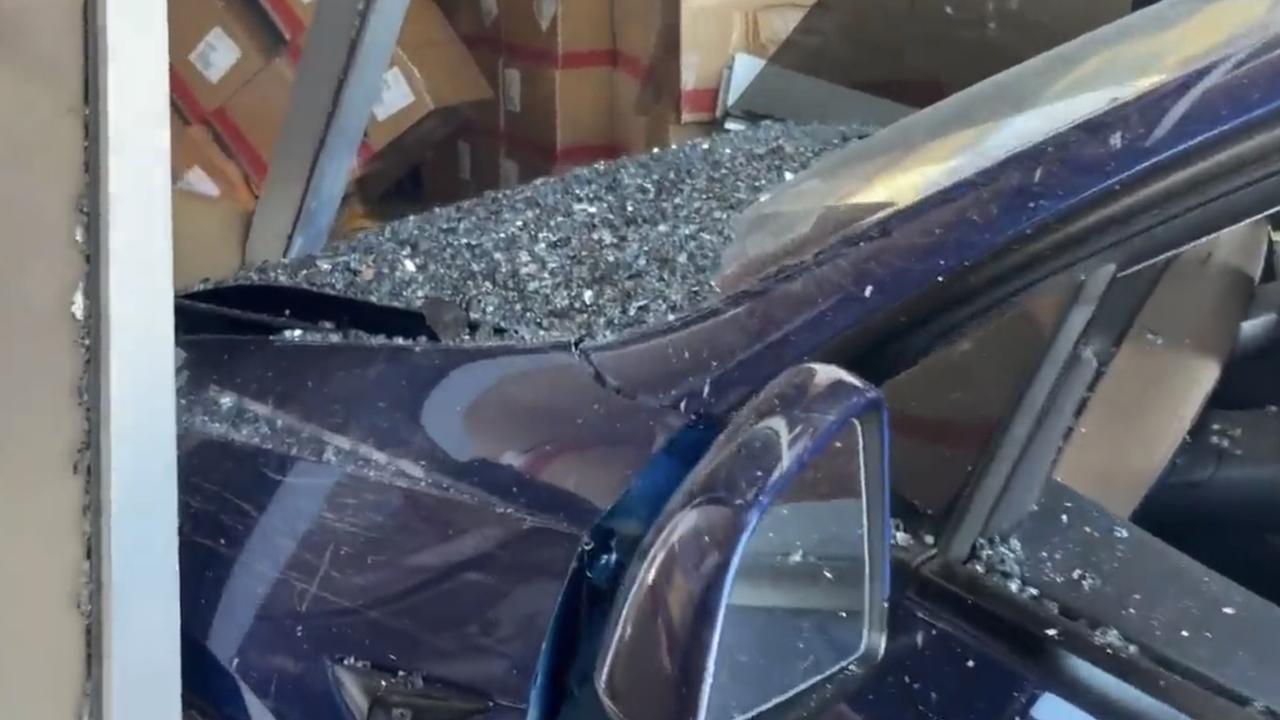
We’ve tested almost every electric car on sale in Australia and found many machines do not have high-performance braking and handling characteristics to match their acceleration.
Tesla’s popular Model 3 sedan can reach 100km/h in a supercar rivalling 3.3 seconds.
It offers up to 377kW of power while weighing 1844 kilograms and being stopped by front brake discs measuring 355 millimetres in diameter.
BMW’s similar-sized M3 Competition sedan uses 375kW to reach 100km/h in 3.9 seconds, but it weighs less, has much wider tyres and bigger brakes to help drivers stay in control.


